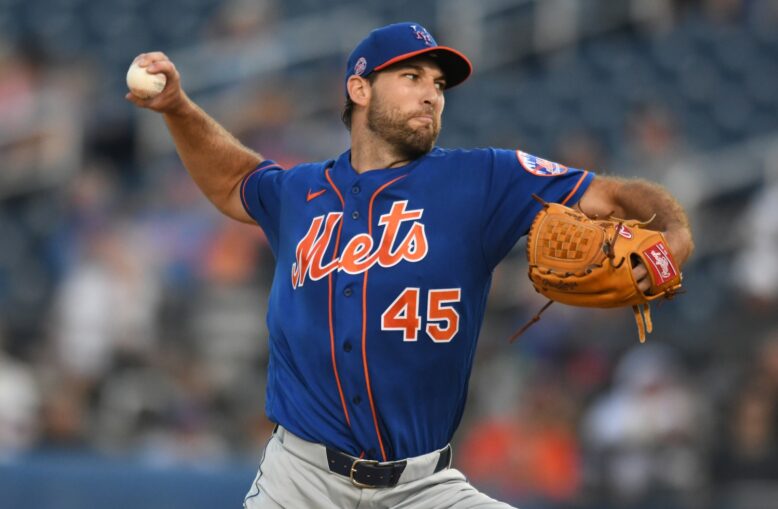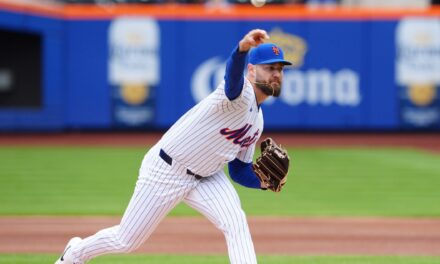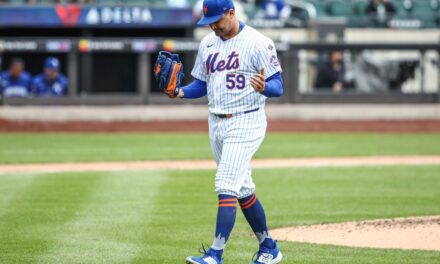
The Mets brought in Michael Wacha this offseason on a “prove it” type deal, signing him to a one-year, $3 million deal that can elevate to $10 million if he hits all his incentives.
At Spring Training, Wacha was gunning for the rotation despite the team having six pitchers to fill a five man rotation. However, with the injury to Noah Syndergaard that will sideline him the entirety of the season, Wacha finds himself as a near guarantee to get the ball every fifth day.
The Tennessee native was originally selected by the St. Louis Cardinals in the first round of the 2011 MLB draft and debuted two years later.
After spending seven seasons with the Cardinals, Wacha hit free agency for the first time this winter at 27-years-old. A pitcher who once had a ton of potential never quite lived up to it, but now has a fresh opportunity as a Met.
So how is he making adjustments with his new ballclub to prove himself? Well, with a little help from his own father.
Deesha Thosar of the New York Daily News reports that Wacha and his dad studied his 2019 starts and analyzed different aspects of his game such as release point, spin rate and arm slot amongst others, and together, are embracing the analytical aspect of the game to elevate his performance.
“I’ve always just been like, I’m going to out-compete this guy,” Wacha said, according to Thosar. “I usually take it on myself and not really understand — OK, that’s a bad pitch because of this, and maybe this will work better because of the spin rate or the ride on this pitch.”
Wacha put up 3.1 fWAR, a career high, back in 2017, but since then has put up just 0.6 fWAR which included a 2019 season where he shuffled between St. Louis’s bullpen and rotation and had -0.2 fWAR.
“My dad definitely pulled up quite a bit of the videos,” Wacha said according to Thosar. “He’s got some websites — I don’t even know where he looks it up. He’s got my release points at certain times during the year when I’m not pitching good. He was definitely getting into it this offseason and passing along some information to me. I think it was very helpful for sure.”
Thosar adds that this led to an advantage for Wacha, who met Mets’ pitching coach Jeremy Hefner and assistant pitching coach Jeremy Accardo this spring, and when they approached him about adjustments, he told them what he had already been working on this winter.
With a new opportunity, Wacha will get a chance to prove himself in the rotation instead of battling for a spot, and he’s already got a fan in Mets’ manager Luis Rojas.
“I’ve really enjoyed watching [Wacha] pitch,” manager Luis Rojas said according to Thosar. “I liked the plane on his fastball and touch on his changeup. It looked like he was creating some contrast with his changeup, so when you get velo, you get swings and misses with your changeup like he did and I think he was pretty firm and had a good angle at the plate.”














